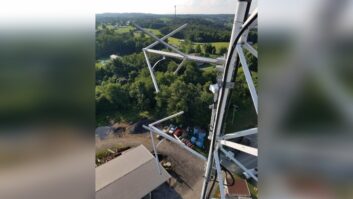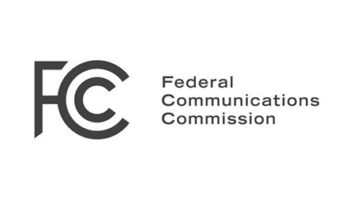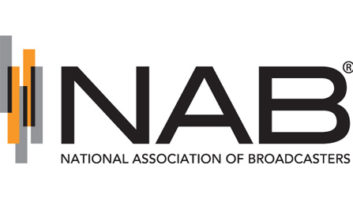AFCCE, FCC Iron Out CDBS IssuesIn the last few years, the FCC has made great strides to clean up the Consolidated Database System, according to an organization representing engineering consultants.
Alan Rosner, consulting engineer at Maryland-based Denny & Associates and vice president of the Association of Federal Communications Consulting Engineers, the commission has been responsive in fixing mistakes when pointed out by the committee.
Rosner, head of an AFCCE-FCC committee to fix database errors, and fellow committee members meet with the Audio Division staff every other month to discuss issues and run regular checks on the database to find errors. They report those mistakes to the agency.
“They tell us the reason (for the error) and fix what’s wrong,” Rosner said.
Rosner cited three reasons for inaccuracies in the database: human processing errors by the applicants such as typos, mistakes in old data in which the cleanup is still ongoing and internal processing errors at the agency. Sometimes, Rosner said, this type of inaccuracy will get into the session when the commission grants a new application but the old application is not deleted.
In the past, the FCC has maintained that the databases are unofficial listings prepared for the convenience of the commission and should not be relied upon by the public because of cases in which the database may not match up with official sources of information, including official license documents or actual applications.
That view is being challenged by AFCEE. In May 2002, it requested that the FCC designate CDBS as the official source of broadcast station technical parameters because of the number of FCC applications that must be filed electronically.
“While we recognize that the CDBS, like previous official sources, may sometimes have errors, we believe it is important for the commission to codify use of the CDBS as the new official source so that filings may be based on it without questions of negligence being raised over use of the CDBS, ” AFCEE wrote in its filing last year.
At press time, Rosner said AFCCE hoped for a response from the FCC’s Media Bureau before this fall.
Because CDBS is updated almost constantly, Rosner said it is difficult to quantify the rate at which errors enter the database. If stations are concerned that proposed translators will cause interference to them, Rosner offered this advice: Every station should be diligent in knowing what is contained in its record and contact the FCC to correct mistakes themselves.
— Naina N. Chernoff WASHINGTON A torrent of applications received this year by the FCC for new FM translators is causing some broadcasters and engineering consultants to worry about potential interference to existing stations.
When it accepted applications for translator frequencies this spring, the FCC received approximately 13,000 requests. Commission staff believes those applications demonstrate high demand for translators.
The auction filing window, never before conducted for FM translators, could produce more authorizations than the commission has allowed in more than 20 years, experts say. Auctions will be held only for those frequencies that are contested. It’s unclear which frequencies would be auctioned and when; several procedural steps remain.
‘Land grab’
An FM translator rebroadcasts the signal of a primary FM station on a different frequency, typically to fill in coverage. Roughly 3,650 FM translators were licensed to operate in the United States as of May, according to the FCC.
A seven-day window to apply for a translator frequency opened in March; it was the first opportunity to file applications since 1997 and became known as what one consulting engineer termed a spectrum “land grab.”
In June the commission released a list of nearly 4,500 short-form uncontested applications that will not be subject to an auction. Experts believe the FCC potentially could double the number of authorized FM translator stations.
More than 13,000 short-form applications were filed to determine the number of uncontested vs. contested applications. Long-form applications, which the FCC will use to evaluate technical compliance with its rules, were due Aug. 29.
Although it’s unclear exactly how many translators ultimately will be licensed, some station owners are concerned about short-form applications they say do not comply with interference standards. They also are displeased with a provision that they say allows proposed translator licensees to swap their primary station after their applications are granted and gives commercial applicants an advantage over noncommercial educational stations seeking a translator frequency.
Within a year, the FCC plans to release a list of uncontested applications accepted for filing. Then station owners and others would have a 15-day period to protest those selections through Petitions to Deny.
As with other commercial service auctions, which normally have a five — day petition — to-deny period, the FCC is authorized by Congress to hold open a short time period to address any issues with an application.
Encroaching translators
While they acknowledge that the comment period was put in by place to streamline the application process, some FM licensees say the period leaves stations little time to go through the final list of applications, evaluate potential interference problems and file objections.
“You can’t (become prepared) until the long-form applications are accepted,” said Rich Potyka, general manager and co-owner of KRXS(FM) outside of Phoenix.
FM stations also need to follow the progress of applications for translators filed in their areas, said Tom Taggart, co-owner of two stations in St. Mary’s and New Martinsville, W.Va., WRRR(FM) and WNMR(FM).
Station owners will have to pay the expenses of defending their stations and overcome the challenges of using the FCC database to evaluate potential problem translators, he said. Both owners worry about what they say is the inaccuracy of the information in the database that may allow encroaching translators to get on the air.
An FCC Audio Division official disputed this, saying the agency has never granted an authorization in error because of a database omission in the Consolidated Database System. The CDBS is used as a source of engineering data for many studies undertaken by stations.
The official said the division also regularly grants channel changes to translators to lessen potential interference on FM stations.
Translators must meet the requirements of Section 74.1203 rules, which state that if a translator causes interference to another FM full-service station and the FCC receives complaints from legitimate listeners independent of the complaining station, the translator would be required to cease operation or reduce power to eliminate the interference.
In the event an application were granted accidentally, petitioners could file a petition for reconsideration within 30 days of the granting of the license, the FCC official said.
In recent history, the FCC has had one case in which it had to reverse a decision. The case involved an application for a new AM station in 2001. The commission granted an application to Star Development Group Inc., which used information from the CDBS in its application for 1120 kHz in Orlovista, Fla.
WRMQ(AM) in Orlando filed a motion against Star’s application for interfering with the station’s prior application for a minor change to increase its daytime power to 5 kW.
According to the FCC public announcement in July 2002, the station’s application was filed on a paper form at a time when the commission was converting paper records to electronic forms. Because of an error, the application was not entered into the CDBS. The following year, the commission recognized the error and allowed Star Development Group to file another application.
The action on the situation serves as an example of the FCC’s legal recourse to correct errors after an application is approved, said Alan Rosner, consulting engineer at Maryland-based Denny & Associates, vice president of the Association of Federal Communications Consulting Engineers and head of an ad — hoc AFCCE — FCC committee to fix CDBS errors.
Interference issues
Commission rules do allow translators to operate on second — and third — adjacent channels located within a certain distance of licensed operators. These rarely cause problems with modern receivers, according to broadcast consulting engineer Gray Frierson Harding.
According to Section 74.1204(d) of the FCC rules, translators can operate in an area even if there is predicted interference to full-power stations if demonstrated that interference will not occur due to lack of population within the overlap area.
Any interference heard at the edge of the predicted contour of existing stations, Harding said, is limited to small areas such as a one — to two — block radius, depending on the relative strength of the signal.
“I think that worries about second — and third — adjacent channel interference are overblown; but some of that remains to be seen,” he said. “If the translator causes interference, being classified as a secondary service, it has to correct the interference or go off the air.”
No numbers
Some consulting engineers contacted by Radio World were unclear about how many full-power stations might be affected by the possible influx of translators in the future.
AFCCE President Charles Cooper, consulting engineer at duTreil, Lundin and Rackley, recently conducted a study to find out how many translators would have to seek waivers to broadcast in or adjacent to the service contours of full-service FM stations.
Using standard FCC propagation curves of translator applications, Cooper found that 1,842 among the 4,500 uncontested applicants would cause interference for two understandable reasons: the proposed translators may function as “fill-ins” for stations already broadcasting in that area, or the applications may have contained typos for the coordinates of the proposed translators.
Though the interference question is something FM broadcasters should monitor, Cooper said, he doesn’t believe stations should worry about the proposed translators at present because some applicants will not follow through with long-form applications.
He said those who do will need to fix any errors made on their short-form application when filing the long form, eliminating any cause for concern.
Some other radio professionals are concerned that the FCC’s filing procedure may worsen the problem.
In the short-form applications, many applicants applied for every available frequency in their communities; others applied for several translators in the same location to maximize their chances.
But the FCC’s short-form list did not suggest that the agency evaluated their applications to see whether the frequencies are available and conform with protection requirements, said Roy Stype, head of the engineering department at Carl E. Smith Consulting Engineers.
“The FCC sees (the process) as more efficient because they don’t spend time on applications,” Stype said, adding that the FCC only looks at the applications to determine which ones are uncontested.
But according to auction rules (MM Docket 95-31) adopted by the commission, the FCC is supposed to use the short-form application to determine if applicants are uncontested. The Audio Division will evaluate the long-form applications for technical compliance.
The FCC is confident that it can weed out problematic applications using the long-form application process. Though hundreds of FM translators exist on second — and third — adjacent channels within the service contour of full-service stations, the division official said the FCC has received no interference complaints.
Commercial advantage
The application process also is raising a fear among some noncommercial translator contenders. They believe fellow applicants are trying to circumvent the proposed rules for how the FCC should handle groups of uncontested applications that contain both non-commercial and commercial applicants.
The proposed rules reflect a district court ruling that prohibits the commission from forcing public broadcasters into auctions.
Uncontested applications would be given an opportunity for settlement under the current rules, which have to be finalized and are a part of an ongoing rulemaking by the FCC. Under current rules, if no settlement can be reached between the applicants, the noncommercial applications would be dismissed in favor of commercial applicants, said Harding. Once a station is on the air, it can file a minor modification application to change its primary station to another commercial or public station later.
The FCC official said the current rules give commercial applicants a slight advantage, but no guarantee that they will win the frequency at auction if more than one commercial applicant is competing against one another.
Religious broadcasters
Several engineers also are concerned that the top two applicants in the short-form window may be trying to circumvent the proposed rules.
According to FCC applicant records, Radio Assist Ministry and Edgewater Broadcasting approximately filed a combined 4,000 short-form applications. The FCC approved 157 of Radio Assist Ministry’s applications and 97 from Edgewater Broadcasting.
Harding is concerned they may agree to translate commercial stations and, after their applications are granted, begin translating their own religious broadcasting.
“It’s mostly just a land grab,” Harding said. “You apply for it all … see whether you’re MXed … and then select what you want.” MXed refers to mutually exclusive applications.
Moreover, Harding said, “The government is richer by $600 each.” Applicants who apply for a translator indicating that they will relay primary commercial stations have to pay an application fee of $600. Noncommercial applicants are exempt from the fee.
A representative of Radio Assist Ministry said he understands the concerns of some broadcasters about interference and Radio Assist Ministry will work to evaluate and fix potential problems at the time of its buildout.
“The FCC has regulations that address these concerns. These other groups have nothing to fear,” said Clark Parrish, who filed applications for the group. “Although many construction permits will be granted, only those stations that are turned on and do not interfere with existing facilities will remain on air.”
Parrish said the nonprofit group plans to file as many as long-form applications as possible.
“Some of the applications are not workable and we do not intend to file long-form applications for those,” said Clark Parrish, who filed applications for the group. “We plan to use many of the multiple ‘singletons’ that are granted to resolve the mutually exclusive filings which will benefit other organizations.”
Parrish said Radio Assist Ministry and Edgewater Broadcasting, which are nonprofit educational organizations, are governed by similar boards of directors. Radio Assist Ministry, he said, has the necessary financial commitment to not only file the applications to rebroadcast both non-commercial educational and commercial stations but also to build and operate the stations.
While the group does plan to rebroadcast primarily Christian educational programming stations and other religious programming and Spanish programming formats, Parrish said Radio Assist Ministry plans to help other organizations seeking to get into broadcasting and assist existing broadcasters to expand, reaching more than 1,000 communities.












